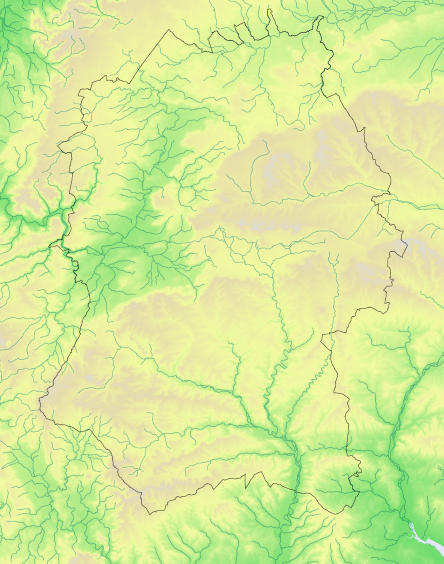Lesser Whitethroat Sylvia curruca
Summer abundance 2007–2012
Locally common summer visitor, breeds Europe, winters Africa
Atlas species lists
- Breeding distribution 1995–2000
- Summer abundance 1995–2000
- Winter distribution 1995–2000
- Winter abundance 1995–2000
- Breeding distribution 2007–2012
- Summer abundance 2007–2012
- Winter distribution 2007–2012
- Winter abundance 2007–2012
- Breeding distribution change
- Summer abundance change
- Winter distribution change
- Winter abundance change
More Lesser Whitethroat maps
- Breeding distribution 1995–2000
- Summer abundance 1995–2000
- Winter distribution 1995–2000
- Winter abundance 1995–2000
- Breeding distribution 2007–2012
- Summer abundance 2007–2012
- Winter distribution 2007–2012
- Winter abundance 2007–2012
- Breeding distribution change
- Summer abundance change
- Winter distribution change
- Winter abundance change
More maps for this atlas
Map explanation
This map shows the summer relative abundance of the species in Wiltshire, based on variation from the average, as revealed by the shared fieldwork for Bird Atlas 2007-2011 (BTO 2013) and for Wiltshire Tetrad Atlas 2007-2012.
Key
Relative to average
Nos tetrads

>50% fewer
84
9%

25-50% fewer
2
<1%

Average +/- 25%
40
4%

25-100% more
31
3%

>100% more
23
3%
Total
180
20%

Not surveyed
Lesser Whitethroats breed in Europe, except in Iceland, northern Fenno-Scandia and Russia, Ireland, west and southwest France, Spain and almost all of Italy. From Europe their range extends through Turkey and the Middle East to east-central Siberia, Mongolia and western China. They winter in sub-Saharan Africa, mainly in the northeast, but also in Chad, Niger, Mali and Senegal.
In Britain their breeding area is concentrated mainly in the south and east of England. They also breed in lowland areas near coasts in southwest England, Wales, northern England and southern Scotland. They are largely absent from upland areas and the whole of northern Scotland. They are however extending their range northwards: Bird Atlas 2007-2011 recorded a 32% increase in their distribution since the 1968-72 Breeding Atlas, mostly in the north. This was against a background of a stable population from the 1960s to the late 1980s, a moderate decline during the 1990s and an increase since then.
National records show regular fluctuations from year to year in the numbers of Lesser Whitethroats arriving in Britain, a pattern that has also been apparent in Wiltshire records, varying from the mid-19th century ("quite common") to the early 20th ("less numerous"), mid-20th ("fairly common") and in the 1980s "numbers fluctuate widely from year to year". Birds of Wiltshire recorded them in 374 tetrads with breeding in 154. WTA2 recorded them in only 318 tetrads, with breeding in 85.
References
The following references are used throughout these species’ accounts, in the abbreviated form given in quotation marks:
“1968-72 Breeding Atlas” – Sharrack, J.T.R. 1976: The Atlas of Breeding Birds in Britain and Ireland. T. & A. Poyser
“1981-84 Winter Atlas” – Lack, P.C. 1986: The Atlas of Wintering Birds in Britain and Ireland. T. & A. Poyser
“1988-91 Breeding Atlas” – Gibbons, D.W., Reid, J.B. & Chapman, R.A. 1993: The New Atlas of Breeding Birds in Britain and Ireland 1988-91. T. & A. Poyser
“Birds of Wiltshire” – Ferguson-Lees, I.J. et al. 2007: Birds of Wiltshire, published by the tetrad atlas group of the Wiltshire Ornithological Society after mapping fieldwork 1995-2000. Wiltshire Ornithological Society.
“Bird Atlas 2007-2011”-– Balmer, D.E., Gillings, S., Caffrey, B.J., Swann, R.L., Downie, I.S. and Fuller, R.J. 2013: The Breeding and Wintering Birds of Britain and Ireland. BTO Books.
“WTA2” – ("Wiltshire Tetrad Atlas 2 ") the present electronic publication, bringing together the Wiltshire data from “Birds of Wiltshire” and “Bird Atlas 2007-11”, together with data from further fieldwork carried out in 2011 and 2012.
"Hobby" - the annual bird report of the Wiltshire Ornithological Society.

